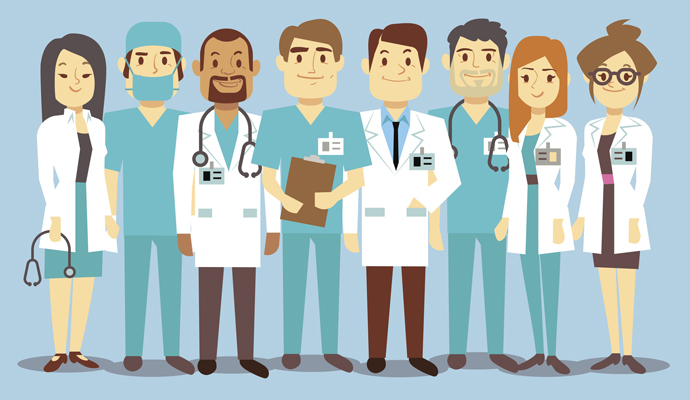
If COVID-19 has shown us anything, it’s that when duty calls, medical professionals answer. From makeshift testing sites to frontline emergency rooms across the country, countless doctors, nurses, and other healthcare workers have demonstrated remarkable resilience and courage to save lives during this pandemic.
As a pre-med student myself, I have watched this crisis play out with a mix of admiration and distress. I am constantly inspired by the thousands of medical workers who put their lives at risk to care for patients and comfort their worried families. But I also wonder every day if one of my parents will come home from running errands with the coronavirus. And I know one day, if something like this pandemic were to ever happen again, it will be me on the frontline. When I consider the work done by healthcare workers on the frontlines of COVID-19, I wonder, will I be able to do as good a job? Will I have their same grit?
I recently drove my mom to her nasal swab. We got there around an hour before noon and were met by a line of cars stretching a block past the testing site, which was our local clinic’s recently converted parking lot. There were so many cars in line that we saw some workers, still in their PPE, switch back and forth from traffic control and their clinical duties. Summers in Southern California are hot and dry, and on this particular day, the weather was especially unforgiving; heat waves pushed the temperature past 100°F as workers trudged from car to car in layers of PPE.
Their circumstances were so painfully different from ours. The healthcare workers were under a harsh sun while we were reclining at a comfortable 72°F. We even had some takeout in the back seat, and its smell wafted through our cool air. I turned the AC down a couple notches and shrunk a little in my seat to try and avoid being seen, totally embarrassed at how much more comfortable my morning had been than theirs. Finally, a nurse arrived at our car and I reluctantly rolled down a window.
“Feels great in there! Don’t worry, this’ll just take a second,” she chuckled as she started the swab.
The nurse gave my mom clear instructions on what to expect and completed the test with ease and unmistakable care. She even sounded like she had a smile under all that protective gear.
“Has it always been this busy?” I asked.
“Busy?” the nurse said. “This is our quietest day in a while.”
In the moments we had before the next car pulled up, I asked the nurse how she was doing. She told me she was almost halfway through her fourth twelve-hour shift in the last five days, and to prevent any possibility of bringing the virus home, she had relocated to an apartment and not seen her husband and children in the last two months.
“But, I have to say” she whispered before walking to the next car. “I wouldn’t rather be anywhere else.”
Our nurse described real sacrifice. Cancelled summer plans, rough transitions to online learning, and socially distanced friendships I experienced were nothing compared to her new normal. The hours, the heat, the inherent danger of the virus, separation from her loved ones, she was taking it all in stride.
One day, if I am going to guide my patients with trust and care through the hardest moments of their lives, I owe it to this generation of healthcare workers to remember how they treated and led their patients through the worst pandemic in a century. If this crisis has shown me anything, it’s that practicing medicine demands the courage to go that extra mile, and often make the same sacrifices that our nurse made every day, all with a smile.
Armaun Rouhi is a senior at the University of Pennsylvania studying Biology and Health & Societies. He is passionate about bedside medicine, radiation oncology, and care giving. In his spare time, he loves reading short stories, playing the piano, and exploring his hometown of San Diego, California.